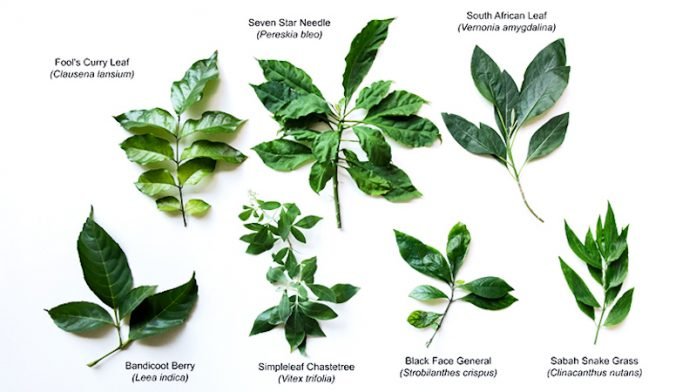
Sometimes nature can provide effective tools to fight cancer.
For example, recently researchers have found that several medical plants can help stop cancer growth.
The plants include the bandicoot berry, South African leaf, and simpleleaf chastetree and other three plants.
The research was conducted by a team from the National University of Singapore.
Previous research has shown that medical plants can help treat many diseases. But the anti-cancer properties of the plants have not been well studied.
In the current study, the team examined different types of medicinal plants that grow in Singapore and the region.
They found that many local people used the plants to improve general health, clean their livers, and boost the immune system.
Among the medicinal plants documented, people also used some to treat cancer.
The researchers focused on seven promising plant species: bandicoot berry, Sabah snake grass, fool’s curry leaf, seven-star needle, black face general, South African leaf, and simpleleaf chastetree.
They examined extracts of fresh, healthy and mature leaves of the seven plants, and testing the extracts with the cell lines of seven different types of cancers, including breast, cervical, colon, leukemia, liver, ovarian, and uterine cancer.
They found that the extracts of the leaves of the bandicoot berry, South African Leaf, and simple leaf chaste tree could fight against the seven types of cancers.
In addition, the leaf extracts of the seven-star needle performed well against cervical, colon, liver, ovarian, and uterine cancer cells.
The leaf extracts of two other plants—fool’s curry leaf and black face general—could effectively fight against some cancer cell lines.
The team hopes their findings can help develop new treatments for these types of cancer in the future.
They also warn that people should not self-medicate without consulting qualified practitioners.
The lead author of the study is Koh Hwee Ling, associate professor from’s pharmacy department.
The study is published in the Journal of Ethnopharmacology.
Copyright © 2019 Knowridge Science Report. All rights reserved.



